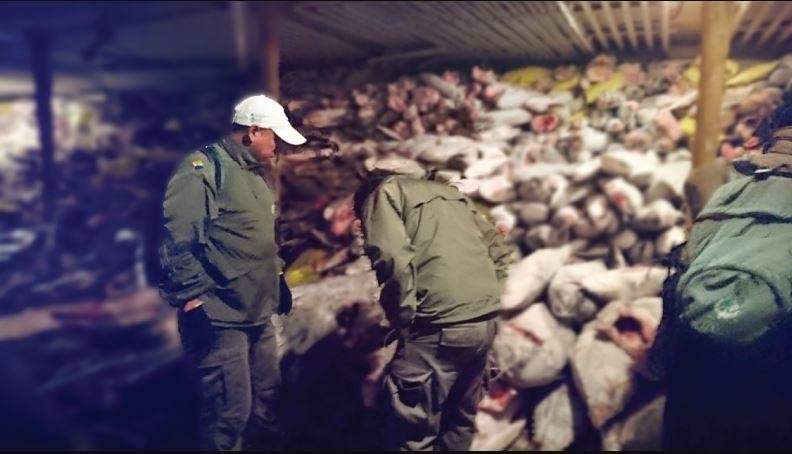Ecuadorian officials inspect a Chinese fishing boat believed to have on board thousands of sharks illegally fished from waters in the Galapagos Marine Reserve on August 13. Photo by
Ecuadorian Minister of the Environment
Aug. 16 (UPI) -- The Ecuadorian navy arrested a Chinese fishing crew for allegedly fishing thousands of sharks in the Galapagos Marine Reserve, an area where fishing is illegal.
The Fu Yuan Yu Leng 999 crew was arrested August 13 about 34 nautical miles east of San Cristobal island, the Ecuadorian Minister of the Environment said in a press release. On board, officials found 300 tons of sharks and other sea creatures.
Galapagos National Park director Walter Bustos said the origin of the fishing haul hasn't been determined. But officials suspect it was illegally fished in the Galapagos reserve and could be the largest illegally fished haul intercepted by authorities.
"There were thousands, if not tens of thousands, of sharks," marine ecologist Pelayo Salinas, who was involved in the pursuit to capture the Chinese vessel, told National Geographic. "This is going to be historic. The biggest seizure of sharks in the history of the Galápagos, for sure."
China has a strong demand for shark fin, a popular cuisine there, despite a recent decline in consumption due to spreading awareness about the environmental damage overfishing for sharks cause. But the decline hasn't stopped fishing for sharks and illegal fishing in the Galapagos, which has the highest concentration of sharks in the world, is an ongoing problem.
The area covers more than 51,000 square miles of ocean and WildAid estimates that there are between one and five illegal fishing vessels in the area at any time.
"Sadly, this is day-to-day business on the ocean," Salinas said. "There are thousands of these ships roaming the waters."















